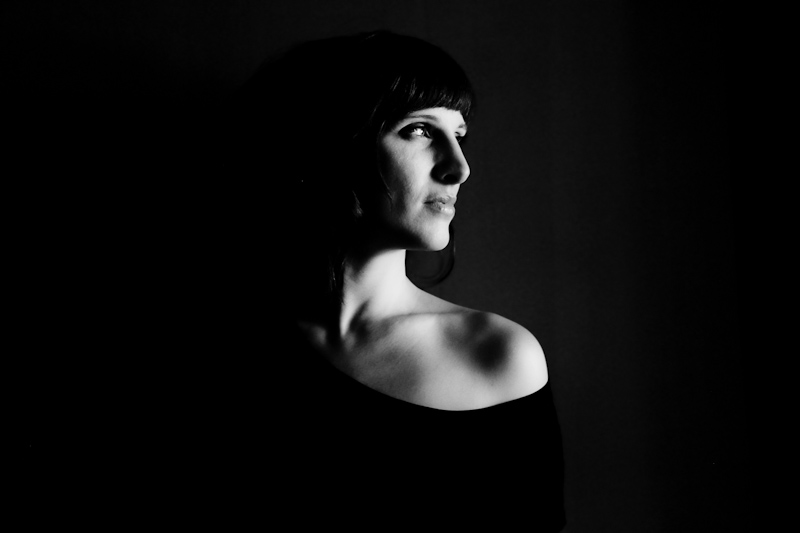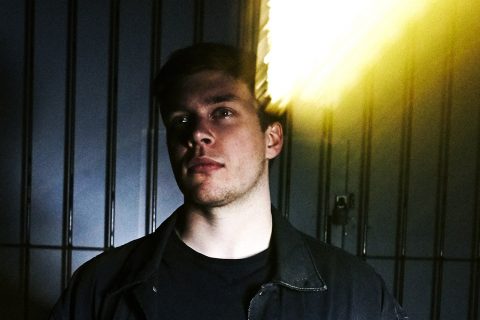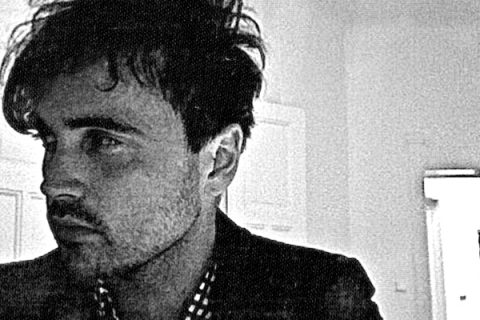Today we shall enter the mind and opinions of a true Australian techno matriarch, Trinity. She’s been heavily involved with underground music for over 12 years now, playing shows all around Sydney, Australia and around Europe. She’s graced the PA system at Tresor 4 times, amongst various other venues in cities all over the EU. You get the picture here.
Trinity is at the forefront of representing what Australia has to offer with it’s own electronic music culture and sound. She embodies all the true signs of a techno head; a quest for innovating her production sound and performances while showing love and respect for a culture that she is attributed to. Above all else, she’s a genuinely lovely human. Easy to talk to and instantly your mate. You can hear the passion for her craft in every sentence she speaks.
Her story begins when she was 14. Being introduced to electronic music by her brother for the first time, he would record a young Trinity (real name Renae) sets from a radio show call 2RDJ on Wednesday nights onto tapes for her own enjoyment. Living in the suburbs of Sydney, she had no idea this kind of scene existed out there in the world. In between songs, the presenters would talk about all the raves and parties that were happening over the course of the weekend.
“I was just mesmerized. What the hell is this? Where are these parties? I want to go! It was so exciting. The music they were playing on the radio was really heavy, heaving techno. I just loved it. I used to walk around at school, with my headphones on, listening to this music. No one I knew even knew this music existed. It was exciting” she said reflecting on earlier times. A mind blowing moment came after her first trip to Central Station record store with her brother. It opened her perspective up to techno as she saw various sub genres of the music lay before her on the record shop stands.
“I felt like I was a raver. I dressed like a raver, I listened to hardcore techno all the time. I didn’t know anyone else that was into it. I had rave posters all over my room but I had never been to one before”. Naturally, she started heading out to the parties she had always pondered about.
“Seeing a female DJ for the first time really opened up my mind to the notion that girls can do this too. It had never really occurred to me before. It only took that one time that I saw a female DJ that I thought ‘I want to be a DJ. I want to do that because I love this music so much and I have to play this music’. I was making tapes for my friends so playing gigs was the next step for me. I’ve been a lover of the music ever since then, when my brother showed it to me for the first time” she said. All it takes is that one time and you’re hooked in for life.
One female artist who inspires her today is Dasha Rush. Having seen Dasha play at Rainbow Serpent Festival myself in 2016, I can fully understand why. “Dasha Rush is a very inspiring women. She plays live, produces, runs her own label. She doesn’t use her looks to get gigs. I loved her boiler room set where she wore a mask. That’s what you want to see as a female artist, you want to aspire people like that. I actually randomly bumped into her at Tresor when she was there a few months ago. I chat to her every now and again since I warmed up for her in Sydney. I really love her”.
I wanted to ask her about a topic that has been on the lips of some music scene, female artists in underground music.
“In Sydney, if a female artist comes onto the scene you can tell that she’s sincere about what she’s doing, if she’s got a good sound and not using her looks or whatever to get ahead, you kind of know that they’re doing it for the right reasons. There are a lot of people willing to help these females out because they know that they’re in the minority and it’s always not that easy for a girl to start out, especially when it’s a bit of a boys club. It’s not so much that guys don’t think girls are as good in the underground scene, it’s more that guys tend to book their friends, as it’s mostly guys putting on the parties.”
“I’ve had a few girls tell me that they’ve experienced discrimination but I’ve never experienced before. I think that some cases it’s given me opportunities as I’ve played at parties with all female line-ups“.
“In my personal situation, it hasn’t affected me. If you play good music and produce good music, then people are going to take you seriously. In the commercial realms, if you’re a female dj, you may have to have a certain image or have that edgy look, but in techno it’s not about that at all, it’s about the music and most people that are into techno know what’s good and know what isn’t so they won’t compromise that with anything”. This is a quality of the underground culture and music that heads can be proud of. Quality of music and ideas is what rules over all. Whatever sex you are has absolutely nothing to do with it.
The current centre of this techno culture is Berlin. Trinity has traveled there 5 times thus far, so it’s quite clear that there is something about the city that draws people into.
“It’s mecca for an electronic music lover!” she said with a laugh. “It’s so inspiring walking into a club and everything is just done the right way. The sound is spot on, the layout is spot on and the music is just amazing. That’s something that we don’t really get here in Sydney. There are a couple of venues around here that are good, but they’re never perfect”.
2013-08-22 Trinity Live from studio r° on Vimeo.
“In Berlin, there are so many clubs and therefore so much competition that they need to be really on the ball. That doesn’t mean that equipment has to be brand new, it just needs to be done right so that you have a good vibe when you walk in”.
“Some of my favorite kind of venues are the disused warehouse spaces or houses that have been turned into nightclubs. They’re just done so so well. Then you just find that that’s just one of so many clubs there. You could go to a new club every night of the week for months”.
“That’s part of the excitement there. The music, the clubs and the culture are inspiring. There is a real clubbing culture over there. In Australia, you just go out in your early 20 and then people just settle down or have babies and stop going out. Over in Berlin, we know many friends that have had kids, but one of their partners will stay home and the other will go out. They’ll go out until well into their 40’s. That’s just part of their everyday living”.
“When you get over there, you’ll discover why people fall in love with the place within 10 minutes. It’s not rocket science, it’s just a feeling that you get when you’re there. If you’ve got inhibition to go over and live there and do music, then go for it! Why not? You can’t expect to go over there and get gigs straight away, it’s about going out and experiencing the city. Being patient is good. If you’re a good artist, they know when you’re being real and you’re passionate. Berliners love that. It’s not about anything else apart from what you’re putting out to the world. They don’t really worry too much about image”. I’m sold. Take my money and get me over there.
Every time she comes back from a trip, she comes back beaming with inspiration. She uses this motivation to create in her Sydney home. “If you want to do anything with music, Sydney isn’t really the best place to be the moment (due to the lock out laws). There is always a Melbourne option”.
“I think Melbourne had a really good scene in the 90’s, but then it kind of dropped off a bit in the mid 2000’s. Now, it’s making a really good comeback. Sydney had a really thriving scene in the last decade, It’s only recently in the last few years that things have flattened. Sydney and Melbourne go in waves, but Melbourne is experiencing something good at the moment” she said. It’s clearly known by now that the lock out laws have had an impact on Sydney’s music scene. Being from Sydney, it was only natural that I should ask Trinity her thoughts on the matter.
“A lot of clubs have been shut down, and those that are still open are experiencing really high police presence and intimidation from the authorities. For example, at the Something Else party that’s held at the Burdekin Hotel, they had sniffer dogs every week for a good few months, about 6 or so police coming through, including licensing police and undercovers for a venue that holds about 300 people. It’s a massive waste of police time and money”.
“Sydney is so safe now that they’re almost trying to create problems with nightclubs, because if there was lots of crime, they would be attending to those rather than stirring up a club. It’s definitely killed the vibe and a big reason why I’ve stopped going out so much. I know that promoters trying to put on nights in the lock out zones are trying really hard but you know that if you go out, you can’t go to two venues in one night because the doors close at 1:30, and at 3:00 they stop serving drinks. By the time you’re ready to go out, you don’t have any time to spend out. It’s hardly ‘going out’”.
“Maybe I’m being paranoid but I think they (government/ police) know that it disheartens a lot of people from going out so they don’t even bother. This leads to club’s shutting down unfortunately. Just the other week, a venue called the Columbian Hotel which is an iconic gay venue on Oxford street, which has been around for ever has just been put up for sale. From memory, when I walked past at 9am, people where still there just chatting, having a fun. You hear about it all the time now which is really sad; these are businesses that employ people and the police just brought up these rules out of nowhere that have so many repercussions, not just for the music but for the peoples whose livelihoods are being affected by the closing of businesses”.
It’s a real shame that this has happened to a great and undeserving city. There is a clear disconnection of those in bureaucratic positions about music culture and how a healthy creative arts scene improves a city’s overall imagine and vibe.
However, some good things have come out as a reaction to these lock out laws. Trinity explains that a new wave of underground rave parties are happening. They’re on the low down, not advertised or not put on facebook. You need to know someone to get an invite. They happen every 2-3 weeks. “There is always somewhere to go if you know where to go, so it can be hard to find. If you’re in there scene, it’s not hard to seek out, but for the average punter it’s more difficult” she said.
“I played at one not long ago and I was just blown away. There are all these people dressed up in proper rave gear like they did in the 90’s, just a modern version of that. They were so up for the music. All the artists that played playing proper techno, on vinyl and so on”.
“It woke me up to the fact that there is hope for Sydney, even though something bad has happened, out of that, there is this, otherwise it (the underground raves) wouldn’t have happened. After the festivals of the early 2000’s, people went back to the clubs, but now people are now going from clubs back to the underground”.
Things have come full circle. She continued to say “The young artists who’re pushing these underground parties know it’s not easy to find venues, to put the parties on and trying and get people in without any kind of promotion at all. But they’re super passionate. They want to push for a certain vibe on these parties and it’s their passion that’s allowing them to get it right. It’s pretty awesome to see and I’m glad that it’s happened”.
Trinity’s first productions surfaced in 2009-2010 as duo with friend John Tzineris. They called themselves Trinity & Beyond. After years of talking about writing music, they combined their creative processes to produce their first EP titled Gone Fisson, release on Melbourne label Pinksilver.
Their first album, Blinded by a 1,000 Points of Light, came about as a matter of circumstance. Trinity & John had been booked to do a live set to warm up James Holden on new year’s eve. They wrote the material for the live set, but as an afterthought of being very happy with the material, they decided to release it as an album. Just recently, the duo finished working on their second album together and are currently looking for a label to release it under.
They drifted apart musically as Trinity turned her attention onto making dub techno but have since then realigned their music interests. She describes some of the sounds from their new body of work as minimal, melodic and hypnotic techno. It took 4 months of studio time to put something together. They had a vision of what they would want their album to sound like, so they worked towards those goals.

Another criteria for the album was that they wanted to it to progress nicely, starting with some ambient sounds and moving into some more harder beats as it carries through time. “It’s good to have a variety” she says speaking on how an album should be structured. “It’s nice to have some tracks that you could play to start a new mix, or tracks for warming up a room, or playing the peak set of the night. Some albums can start to sound the same if nothing is progressing much in terms of content. You want different tracks for different times of the night”.
Aside from works as a duo, Trinity has a catalogue of solo productions which is set to expand in the near future as she describes to me the many works that she has primed and ready to release to the world. As a producer myself, I’m always curious as to the creative process that different artists undertake when writing new music. She rolls off the list of upcoming releases that we can expect, such as a track on a Coincidence Records EP, a new Nightime Drama record with Steven Tang on remix duties plus another record release on Counter Pulse with Advanced Human, which contains remixes from Mary Velo & Headless Horseman.
“EP’s are a different process. You could either write stuff for a label whose requested works, but other tracks could be put together from snippets of live sets, or jams at the home studio. It’s always different”. She doesn’t like doing things with the same process all the time as it can get tedious and takes away from the creativeness of production. This is a think is an important tip to take on board if you’re a producer yourself. Listen and learn kids.
“Techno has got so much good music coming out at the moment. You’re blown away by the amount of amazing music that comes out every week. It’s almost hard to buy any other genre’s of music. I try to still buy some housey, Detroit and Chicago style music, but I find that there is just so much good music coming out of techno. I think that’s why people drift into different subgenres as well. It’s important to move along with and innovate music that people are into at the time, but also it’s more that the DJ’s want to hear something fresh and new. If nothing changes or innovates then DJ’s would just get bored”.
“The genres are changing very quickly. After a couple of months it’s moving into something different. It was only a year ago that people were banging out really hard techno, but now it’s going a bit slower and more melodic. Even a little bit trancey I’m finding”.
“Understanding good music takes time, you’ve kind of got to be introduced to it, which doesn’t often happen for some people. Other times you can go out to a night and you hear proper music for the first time. All you have to hear is one good set or one DJ and your taste completely changes from there on out. It can be hard to find but once you click in with it, your world changes”.
The up and coming Summer is a busy one for Trinity. She’ll be traveling around Australia with gigs such as a Buxton records label night in Brisbane, another secret warehouse party in Sydney, as well as playing in support of an undisclosed female artists who Sydney crew Something Else and bringing down, the Subsonic Music Festival in Newcastle to Melbourne in December. Lecture at the Australian Institute of Music on live performance how she puts her live sets together. If you’re a techno head, I think it’s rather imperative that you go along to one of her performances when she is in your neck of the woods to support one of Australia’s most prominent acts.
Words by Fergus Sweetland.
For a list of Trinity’s upcoming shows, click here.





Comments